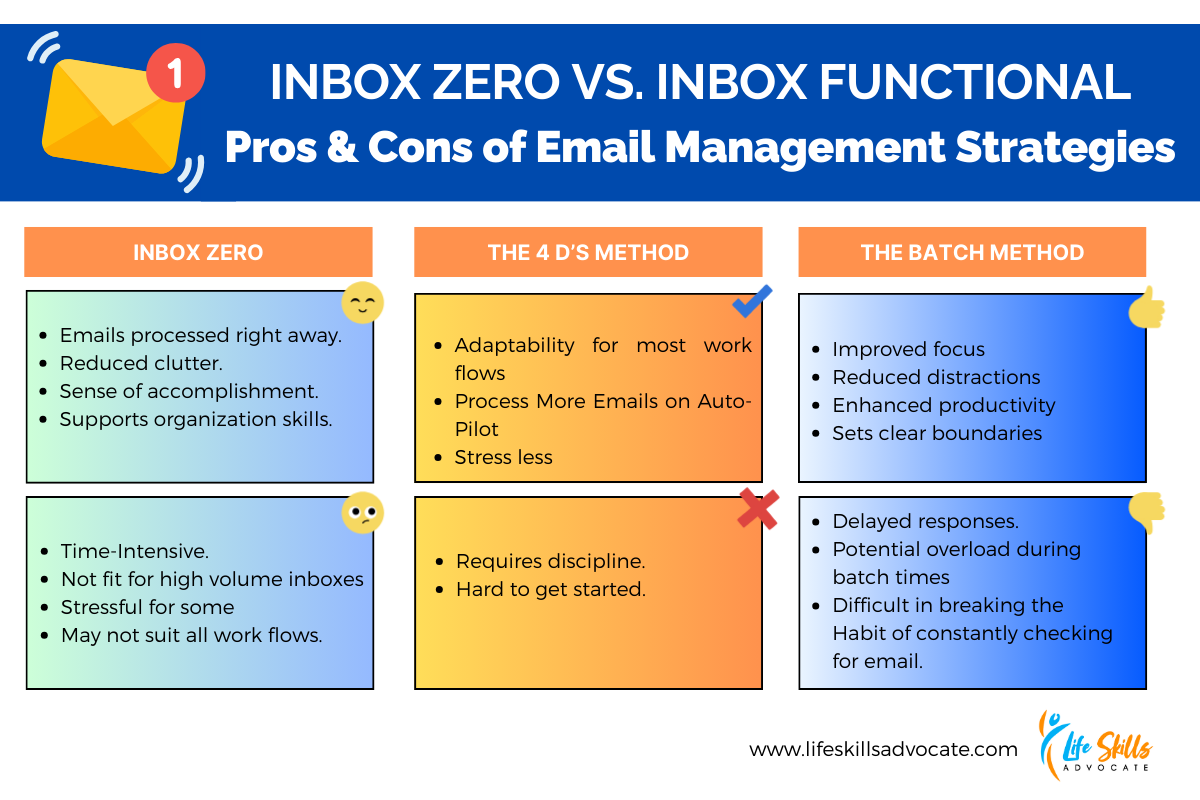In an age characterized by an incessant flow of information, the Bahá’í teachings provide a profound framework for integrating our emotional landscapes, spiritual aspirations, and the prosaic tasks of modern existence. The concept of “Inbox Zero for the Soul” embarks upon a robust exploration of how the principles enshrined in Bahá’í philosophy can offer not merely a method for organizing one’s email but can serve as a holistic paradigm through which individuals cultivate interior tranquility amidst external chaos.
To commence, it is essential to understand the dichotomy between Inbox Zero, a popular productivity methodology, and the existential intricacies of Bahá’í teachings. Inbox Zero favors the complete reduction of emails to a state of empty repose. Yet, the Bahá’í perspective illuminates a more profound ambition: achieving emotional and spiritual equilibrium while engaging with the myriad responsibilities that life presents. This aspiration fosters a seamless integration of our duties and aspirations, engendering a sense of serenity in both the practical and metaphysical realms.
1. The Nature of Clarity in Communication
Bahá’í doctrine emphasizes the significance of clarity in thought and expression. Clear communication cultivates relationships and allows individuals to articulate their intentions unambiguously. In the realm of email management, this principle translates into the practice of remaining succinct and purposeful. By adopting an attitude of clarity, one can ensure that each email represents a conscious choice, thus eliminating any extraneous elements that may clutter both the inbox and the psyche.
The Bahá’í teachings posit that communication should be infused with compassion and kindness. As one assesses each email, a “compassionate lens” can be employed to determine the necessity and tone of response. This perspective invites a conscious pause, a moment of reflection, before engaging. The act of sorting through one’s digital correspondence becomes, therefore, not just task-oriented but also an opportunity to embody the virtues extolled within the faith.
2. Purging the Unessential: A Reflection of Inner State
Embracing Inbox Zero requires individuals to evaluate the necessity of each email, mirroring the Bahá’í admonition to detach from the trivial. In this context, purging the unessential transcends mere organization and speaks to a deeper spiritual cleansing. Much like the heart requires purification to embrace divine attributes, so too must our digital spaces undergo a similar sanctification process.
Regularly assessing what no longer serves a constructive purpose in one’s life—be it in email formats, attachments, or even conversations—provides a liberating sensation akin to releasing physical possessions that burden the soul. Such a practice cultivates an environment that invites creativity and innovation, as it prepares the ground for new ideas to flourish without the suffocation of excess.
3. The Transformative Power of Intentionality
Intentionality lies at the heart of Bahá’í teachings and must be woven into the fabric of daily living and digital interactions. Each email sent reflects an intention, whether it is to inform, request, evoke response, or share knowledge. Practicing intentionality invites a deeper understanding of one’s motivations and aspirations. As we streamline our inboxes, we should consider whether each action aligns with our broader life objectives and principles.
Setting boundaries with one’s digital communications becomes a necessary reflection of one’s commitment to spiritual growth. The practice of allocating specific periods for email engagement enhances this intentional approach, allowing moments of reflection that align with Bahá’í values. By prioritizing essential communications, one’s engagement transforms from a mere obligation to a fulfilling endeavor that resonates with the essence of one’s purpose.
4. Embracing the Spirit of Service
The Bahá’í teachings unequivocally advocate for selfless service. Integrating this principle into the structure of email management fosters a transformative experience. Rather than perceiving emails solely as requests demanding fulfillment, each correspondence can be transformed into an avenue for service—whether through offering assistance, sharing insights, or simply extending warmth through thoughtful replies.
When the inbox is viewed as an opportunity to contribute meaningfully to the lives of others, the act of managing it takes on a spiritual significance. This outlook not only alleviates the pressures often felt in the face of overwhelming digital responsibilities but also contributes to one’s personal development and a sense of interconnectedness with the wider community.
5. Reflection and Gratitude: The Concluding Process
Finally, in alignment with Bahá’í teachings, establishing a practice of reflection and gratitude transforms the process of digital correspondence management. After achieving a state of Inbox Zero, it is vital to pause and appreciate the time and energy invested into this endeavor. Reflection prompts insights into how one interacts with the digital world; it encourages a spiritual audit that elucidates patterns and behaviors that may require adjustment.
Incorporating gratitude into this routine enhances the emotional resonance one feels. By acknowledging the correspondence received and the relationships sustained, individuals find deeper meaning within their engagements, leading to more fulfilling interactions both online and offline.
In summary, embracing the philosophy of “Inbox Zero for the Soul” through the lens of Bahá’í teachings provides a compelling roadmap to achieving both practical and spiritual fulfillment. The interplay of clarity, intentionality, compassion, and service not only declutters our digital spaces but also nourishes the soul. As we strive toward the harmonious integration of our internal and external lives, we become architects of a profound existential tranquility, cultivating an environment where our responsibilities converge with our aspirations and our humanity flourishes.
